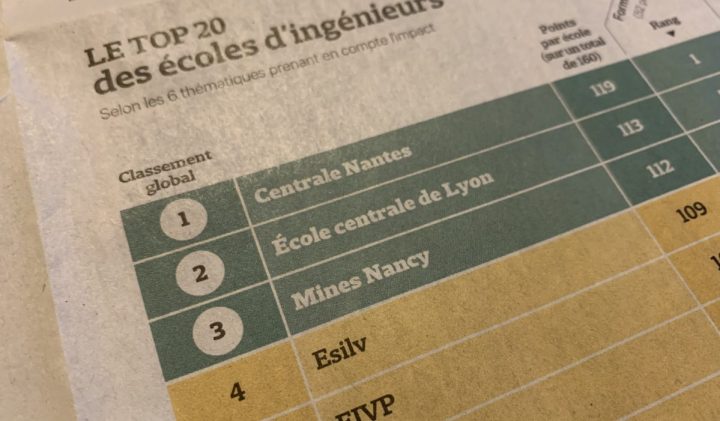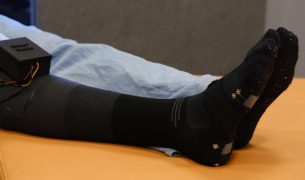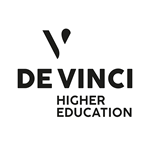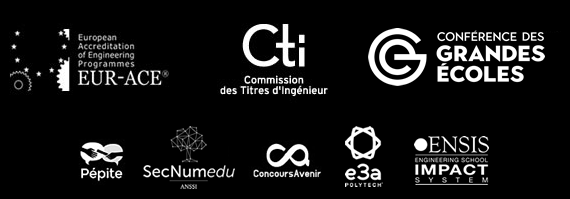The Change Now & Les Echos Start ranking lists and ranks the schools most committed to ecological and social transition. ESILV is now in the top 5, up nine places on the previous ranking, and confirms its desire to have a positive impact on society and the environment through the teaching given to students and a CSR approach implemented throughout the 5-year engineering course.
To have meaning, to have a meaningful job, to lead a meaningful life. The word meaning has never been so much in evidence as it has been for many months, even years, during which the climate emergency has taken over the world’s agenda.
ChangeNOW, a ranking designed to change the world
Wanting to change things, taking action, breaking with destructive practices: these are individual or collective struggles that witness an underlying movement among young people concerned about the state of the planet.
It’s against this backdrop, and in response to students looking for meaning in their higher education, that ChangeNOW and Les Echos START have been publishing a ranking of schools for changing the world since 2021.
This ranking highlights the French schools most committed to ecological and social issues.
Now in its third year, the ChangeNOW & Les Echos Start ranking is going from strength to strength, with a growing number of prestigious business and engineering schools agreeing to participate in the survey.
However, despite the innovative and impactful nature of this new career guidance tool, the criteria used to select the schools still need to reveal all the actions taken by the leading engineering schools to equip future graduates with skills adapted to the new challenges facing the planet.
The ChangeNOW & Les Echos Start ranking of the most committed engineering schools
ESILV enters the Top 5 of the most committed engineering schools
Out of a total of 160 points, ESILV stood out in several categories. In terms of training, ESILV came 4th overall, highlighting its commitment to high-quality education. Also of note was a 1st place ranking for the network of graduates in impact, achieving a perfect score of 12 out of 12 points.
Ethics, sustainable development and CSR are all part of a compulsory course in the 5-year engineering curriculum, starting in the first year of the integrated preparatory course.
These issues accompany students throughout their studies, whether through courses tailored to socio-ecological issues, cross-disciplinary hackathon weeks or their involvement in the students’ community life.
ChangeNow ranking methodology
Sixty-one institutions took part in the 2023 edition, including 35 engineering schools. The evaluations cover all Master’s degrees and are not limited to specialist programmes in sustainable development.
Out of 160 points for the 43 questions asked, the schools – all institutions combined – scored an average of 95 points. The questionnaire is divided into six themes:
- Training (52 pts, eight questions)
- Strategy and governance (27 pts, 14 questions)
- Employability and academic excellence (29 pts, four questions)
- Diversity and inclusion (26 pts, ten questions)
- Community life (14 pts, four questions)
- Alumni network with impact (12 pts, three questions)
While this tool remains necessary for guiding students who want to be agents of change, it nonetheless reflects a partial statistical vision at a given point in time of the state of training in the schools.
Cross-functionality and soft skills aligned with the values of a committed generation
Despite an audit by Deloitte France’s Sustainability teams, certain methodological shortcomings persist. For example, the percentage of courses integrating environmental and societal issues must consider the teaching hours allocated to educational hackathons on impact and sustainability themes.
As part of their “soft skills and cross-disciplinary” training, students from De Vinci Higher Education – ESILV, EMLV and IIM – participate in cross-disciplinary bootcamp weeks throughout their studies.
These activities – a compulsory part of the core engineering curriculum – are designed to prepare students to imagine the solutions of tomorrow. At least 23 cross-disciplinary weeks have been held at ESILV since 2015.
Scientific and technological excellence, soft skills training, and mastery of environmental issues are cenFtral to ESILV’s mission and remain consistent throughout the entire course of studies at De Vinci Higher Education.
At ESILV, training committed and responsible engineers ready to meet the challenges of climate change and society requires a cross-disciplinary approach. Scientific and technological excellence, training in soft skills and mastery of environmental issues are at the heart of ESILV’s mission and are reflected throughout the De Vinci Higher Education curriculum.


















